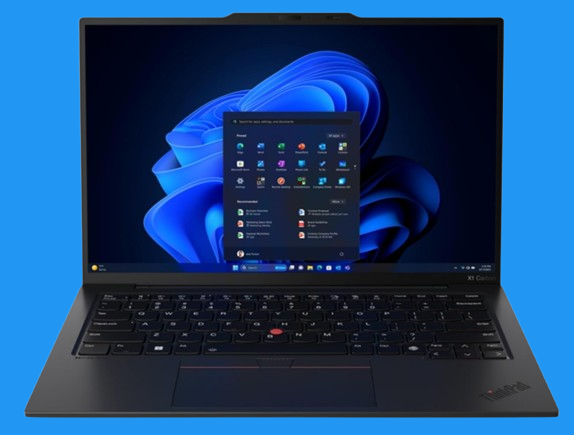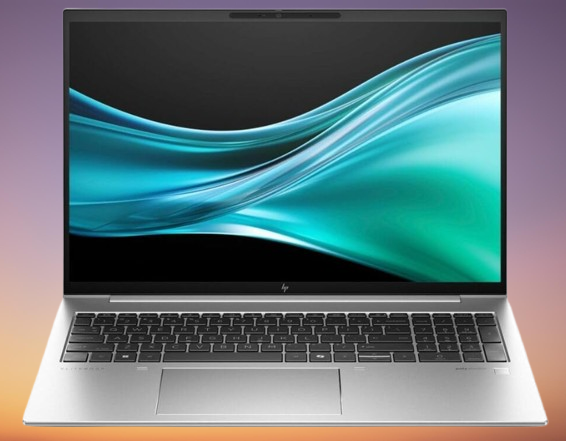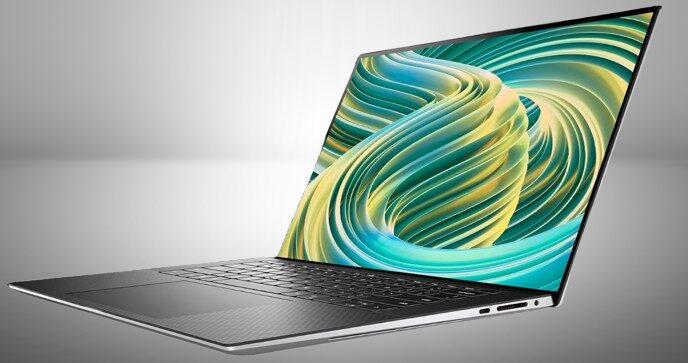In an age dominated by digital threats and cyber-attacks, cybersecurity professionals require advanced tools to effectively defend against evolving risks. One of the critical decisions in this field is choosing the right laptop. This guide explores the essential features, specifications, and considerations when selecting laptops for cybersecurity tasks.
Table of Contents
Key Considerations for Cybersecurity Laptops
There are multiple factors that contribute to the overall performance of a cybersecurity system. The laptop must have the minimum specifications to perform certain tasks for the security purpose.
1. Processing Power and Security Features
1.1 The Role of Processing Power in Cybersecurity
The processing power of a laptop is a fundamental aspect of its capability to handle the resource-intensive tasks inherent in cybersecurity. Cybersecurity professionals often find themselves running multiple applications simultaneously, from antivirus scans to network monitoring tools. A robust processor ensures the smooth and efficient execution of these processes.
Modern processors, such as Intel’s latest Core i7 11th Gen series, are designed with cybersecurity tasks in mind. These processors offer high clock speeds, multiple cores, and advanced caching, providing the necessary horsepower for tasks like malware analysis, encryption/decryption processes, and complex simulations.
1.2 Security Features Embedded in Modern Processors
Beyond raw computing power, the security features embedded in modern processors play a pivotal role in enhancing a laptop’s cybersecurity capabilities. Intel’s vPro technology, for instance, provides hardware-based security features that go beyond traditional software solutions.
Hardware-based security offers advantages such as isolated execution environments, secure boot processes, and protection against certain types of attacks that target the underlying hardware. These features contribute significantly to a laptop’s ability to resist intrusion attempts, ensuring the integrity and security of critical data.
2. RAM and Multitasking Capabilities
2.1 The Significance of RAM in Cybersecurity
Random Access Memory (RAM) is a critical component for cybersecurity professionals who often find themselves working with memory-intensive applications. In the realm of cybersecurity, where multitasking is the norm, having sufficient RAM ensures that multiple security tools and processes can run simultaneously without a significant drop in performance.
For instance, when conducting a penetration test, a cybersecurity professional might run a vulnerability scanner, a packet analyzer, and a password-cracking tool concurrently. A laptop with ample RAM ensures that these processes don’t compete for system resources, leading to a more efficient and effective workflow.
2.2 Minimum RAM Requirements for Cybersecurity Laptops
While the exact RAM requirements may vary based on specific use cases, a recommended baseline for cybersecurity laptops is typically 16GB. This allows for comfortable multitasking and provides headroom for running memory-hungry applications commonly used in cybersecurity tasks.
Choosing a laptop with sufficient RAM not only supports the immediate needs of cybersecurity professionals but also ensures future-proofing as the complexity of cybersecurity tasks continues to evolve.
3. Storage Options and Encryption
3.1 Secure Storage Options for Enhanced Data Security
In the realm of cybersecurity, safeguarding sensitive data is paramount. Storage options play a crucial role in this aspect, with Solid State Drives (SSDs) being the preferred choice over traditional Hard Disk Drives (HDDs).
SSDs offer faster read and write speeds, reducing the time it takes to access and manipulate data. Additionally, they are less susceptible to physical shocks, which is crucial for professionals who may need to travel with their laptops.
3.2 Hardware-based Encryption as an Additional Layer of Security
Beyond choosing SSDs, cybersecurity professionals should consider laptops that offer hardware-based encryption. This feature ensures that data stored on the laptop’s drive is encrypted at a hardware level, providing an additional layer of security against unauthorized access.
Laptops equipped with hardware-based encryption often come with dedicated security chips or modules that manage the encryption and decryption processes. This adds a level of sophistication and robustness to the laptop’s overall security posture.
4. Operating Systems in Cybersecurity
4.1 Comparing Operating Systems for Cybersecurity Tasks
The choice of operating system (OS) is a critical decision for cybersecurity professionals, with various OS options catering to different needs and preferences. The three primary choices are Windows, macOS, and Linux.
- Windows: Windows is widely used in enterprise environments, and many cybersecurity tools are designed with Windows compatibility in mind. It provides a user-friendly interface and a vast ecosystem of applications.
- macOS: While less common in the cybersecurity community, macOS has its merits. It is known for its robust Unix-based foundation, offering a secure and stable environment. Additionally, some cybersecurity tools and applications are compatible with macOS.
- Linux: Linux is a favorite among cybersecurity professionals who value customization and flexibility. Many open-source cybersecurity tools are designed for Linux, and the command-line interface provides a powerful environment for advanced users.
4.2 Customization Options for Security Professionals
Customization is a key consideration for cybersecurity professionals who often require specific configurations to meet their unique needs. Linux, in particular, stands out in this regard, allowing users to tailor the operating system to their exact specifications.
Cybersecurity professionals might need to modify system settings, install custom software, or create specific network configurations. Operating systems that offer a high degree of customization empower professionals to optimize their environment for maximum efficiency and security.
5. Biometric Security and Authentication
5.1 Biometric Security Features for Enhanced Authentication
Authentication is a critical aspect of cybersecurity, and biometric security features add an extra layer of protection against unauthorized access. Modern laptops come equipped with biometric authentication methods such as fingerprint scanners and facial recognition.
- Fingerprint Scanners: Laptops with fingerprint scanners allow users to unlock their devices with a simple touch. The unique biometric data stored in the fingerprint scanner enhances security while providing a convenient and quick means of authentication.
- Facial Recognition: Facial recognition technology uses the laptop’s built-in camera to analyze facial features for authentication. This method offers a hands-free and secure way to access the system.
5.2 Enhanced Security through Biometric Authentication
The use of biometric authentication is particularly crucial for cybersecurity professionals who handle sensitive information. Traditional password-based authentication methods are vulnerable to various attacks, including phishing and password cracking.
Biometric authentication methods provide a higher level of security as they rely on unique physical characteristics that are challenging to replicate. For cybersecurity professionals who need to secure critical systems and data, the inclusion of biometric security features in a laptop is a valuable asset.
6. Endpoint Security Capabilities
6.1 Laptops as Critical Endpoints in Cybersecurity
Understanding the role of laptops as critical endpoints is fundamental to developing a comprehensive cybersecurity strategy. Laptops are often the entry point for cyber threats, making them a focal point for endpoint security measures.
Endpoint security involves protecting laptops from malicious activities such as malware, ransomware, and unauthorized access. Cybersecurity professionals must prioritize laptops as key components of their defense-in-depth strategies.
6.2 Endpoint Detection and Response (EDR) Capabilities
Endpoint Detection and Response (EDR) is a critical aspect of modern cybersecurity, particularly for laptops operating outside the traditional security perimeter. EDR solutions are designed to detect and respond to advanced threats at the endpoint level.
Laptops equipped with EDR capabilities provide cybersecurity professionals with real-time visibility into endpoint activities. This includes monitoring for suspicious behavior, identifying potential threats, and responding to incidents promptly. EDR enhances a laptop’s ability to defend against sophisticated cyber-attacks.
Recommended Best Laptops for Cybersecurity on Amazon
Now, let’s explore the best laptops for cybersecurity in 2025.
1. Lenovo ThinkPad X1 Carbon Gen 12

- Processor: Intel Core i7/i9 13th Gen
- RAM: 16GB/32GB LPDDR5
- Storage: 1TB SSD
- Battery Life: Up to 15 hours
- Security: TPM 2.0, fingerprint scanner, privacy shutter, ThinkShield security
The Lenovo ThinkPad X1 Carbon is a top choice for cybersecurity professionals due to its robust security features, lightweight design, and powerful performance. Its Linux compatibility makes it ideal for running penetration testing tools and virtual environments.
2. Dell XPS 15 (2025 Model)
- Processor: Intel Core i9-14900H / AMD Ryzen 9
- RAM: 32GB/64GB DDR5
- Storage: 1TB/2TB NVMe SSD
- Battery Life: 12+ hours
- Security: TPM 2.0, Windows Hello, encrypted SSD
Dell’s XPS series is a blend of power and portability. The XPS 15 is particularly great for cybersecurity tasks, offering high-end performance for running multiple VMs and penetration testing applications. Its high-quality build and security enhancements make it a solid investment.
3. HP EliteBook 860 G10

- Processor: Intel Core i7-1370P vPro
- RAM: 32GB DDR5
- Storage: 1TB SSD
- Battery Life: 14 hours
- Security: HP Sure Start, TPM 2.0, biometric security
HP’s EliteBook series is designed for professionals who need enterprise-grade security. The EliteBook 860 G10 is excellent for cybersecurity specialists working in corporate environments. Its secure BIOS, encrypted storage, and robust build quality make it a solid contender.
4. Dell XPS 15 (2025 Model)
- Processor: Intel Core i9-14900H / AMD Ryzen 9
- RAM: 32GB/64GB DDR5
- Storage: 1TB/2TB NVMe SSD
- Battery Life: 12+ hours
- Security: TPM 2.0, Windows Hello, encrypted SSD
Dell’s XPS series is a blend of power and portability. The XPS 15 is particularly great for cybersecurity tasks, offering high-end performance for running multiple VMs and penetration testing applications. Its high-quality build and security enhancements make it a solid investment.
Cybersecurity Certifications and Laptops
1. Certifications Overview
1.1 Importance of Certifications in Cybersecurity
Certifications play a crucial role in the cybersecurity field, providing professionals with recognized credentials that validate their knowledge and skills. Key certifications include Certified Information Systems Security Professional (CISSP), Certified Ethical Hacker (CEH), and CompTIA Security+.
1.2 Impact of Certifications on Career Advancement
Professionals who hold cybersecurity certifications often enjoy enhanced career opportunities and increased earning potential. Employers value certified individuals as they bring a standardized level of expertise and demonstrate a commitment to continuous learning in the dynamic field of cybersecurity.
2. Certification-Focused Laptops
2.1 Laptops Supporting Specific Certification Pursuits
Certain laptops are better suited for individuals pursuing specific cybersecurity certifications. For example, those studying for the CISSP may require laptops capable of handling virtual labs and simulations.
2.2 Compatibility with Virtual Labs for Hands-On Training
Many cybersecurity certifications, including CEH and CompTIA Security+, involve hands-on training in virtual lab environments. Laptops that support virtualization technologies, such as Intel Virtualization Technology (VT-x) or AMD Virtualization (AMD-V), are ideal for professionals engaged in certification-focused training.
Cybersecurity Software and Laptops
1. Prominent Cybersecurity Software Solutions
1.1 Antivirus Programs for Laptop Security
Antivirus programs are essential components of a laptop’s cybersecurity arsenal. These programs are designed to detect, prevent, and remove malicious software, providing a foundational layer of protection against common cyber threats.
1.2 Firewalls and Intrusion Detection Systems (IDS)
Firewalls and Intrusion Detection Systems (IDS) are critical for monitoring network traffic and detecting potential security breaches. Laptops equipped with robust firewalls and IDS capabilities contribute to a secure computing environment.
2. Laptops Optimized for Security Software
2.1 Resource Efficiency for Running Security Applications
Efficiently running security applications is crucial for a cybersecurity professional’s workflow. Laptops with sufficient processing power, RAM, and optimized software configurations ensure that security tools operate effectively without compromising overall system performance.
2.2 Real-time Threat Protection Features
Real-time threat protection is a key consideration for laptops in the realm of cybersecurity. Laptops equipped with features such as real-time scanning, behavior analysis, and threat intelligence integration enhance the overall security posture by providing immediate responses to emerging threats.
Conclusion
Choosing the best laptop for cybersecurity is a strategic decision that directly influences an individual’s ability to defend against cyber threats effectively. By considering key factors such as processing power, RAM, storage options, and security features, cybersecurity professionals can make informed decisions that align with their specific needs. The recommended laptops on Amazon serve as excellent options for those looking to enhance their cybersecurity capabilities through reliable and secure computing devices.



